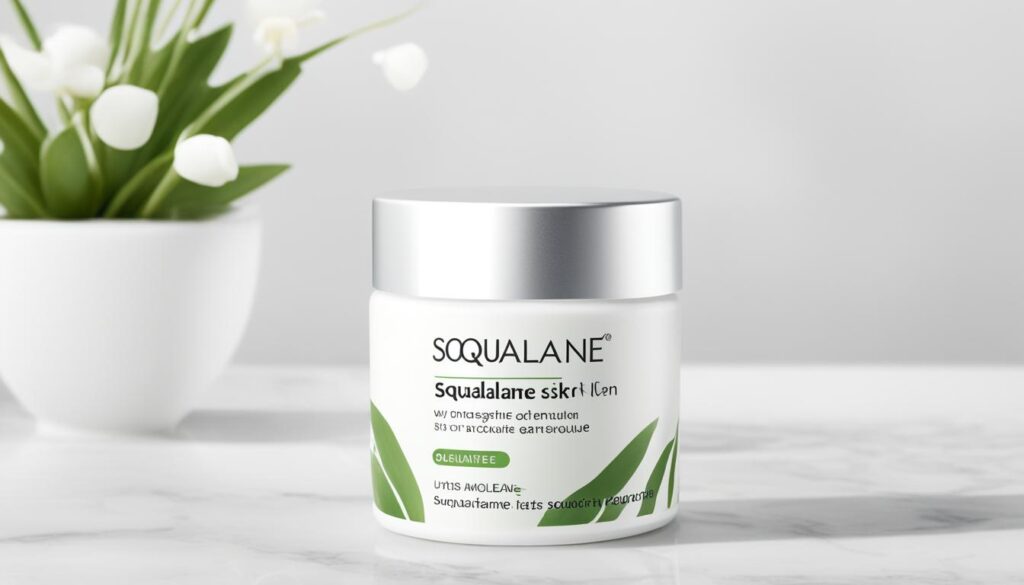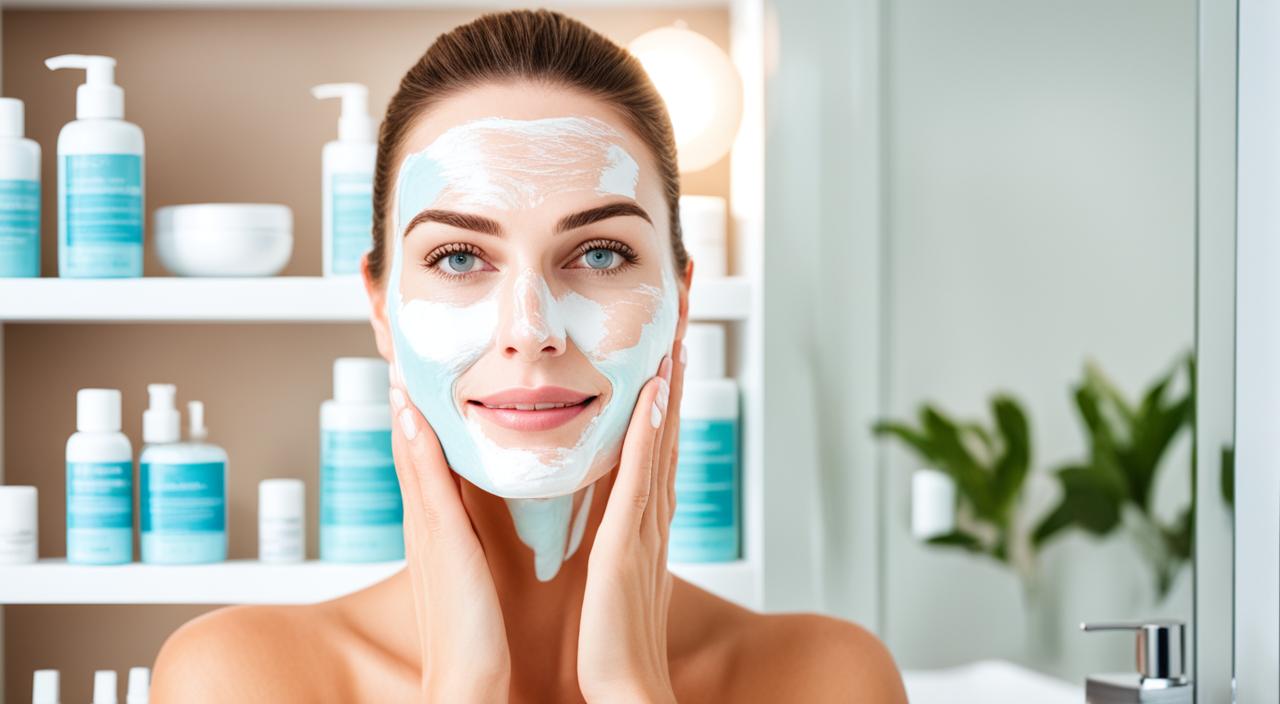What Are The Best Ingredients For Sensitive Skin Care?

Sensitive skin requires special care to maintain its health and prevent irritation. Whether you have dry, oily, or combination skin, a proper skincare routine with suitable ingredients is essential. With the right ingredients, you can soothe and protect your sensitive skin, ensuring a radiant and healthy complexion.
Before we delve into the best ingredients for sensitive skin care, it’s important to understand what sensitive skin is. Sensitive skin is not a clinical term but rather a term used to describe easily irritated skin. It can be caused by various factors such as unsuitable skincare products, hormonal changes, stress, and climate variations. Sensitive skin may also be indicative of underlying conditions like rosacea, eczema, psoriasis, or contact dermatitis.
When it comes to treating sensitive skin, it is crucial to choose skincare products with gentle ingredients that provide calming, soothing, and moisturizing effects. These ingredients can help strengthen the skin’s barrier, reduce redness, and prevent dryness, offering relief for sensitive skin conditions. Let’s explore the best ingredients for sensitive skin care and how they can benefit your skincare routine.
Key Takeaways:
- Sensitive skin can be caused by various factors and may indicate underlying conditions.
- Treating sensitive skin requires gentle ingredients that offer calming and moisturizing effects.
- Hyaluronic acid, jojoba oil, ceramides, squalane, and chamomile are among the best ingredients for sensitive skin.
- These ingredients help hydrate, nourish, and protect sensitive skin from environmental aggressors.
- When choosing skincare products, opt for those from dermatologist-recommended brands and practice sun protection to maintain the health of sensitive skin.
Common Causes of Sensitive Skin
Sensitive skin can be influenced by various factors, leading to irritation and discomfort. Understanding the common causes of sensitive skin can help individuals identify triggers and take appropriate measures to minimize sensitivity.
Unsuitable Skincare Products
Using skincare products that are incompatible with your skin can cause sensitivity. Certain ingredients, such as fragrance, alcohol, and harsh chemicals, can disrupt the skin’s natural balance and lead to irritation. It is essential to select gentle and hypoallergenic products specifically formulated for sensitive skin.
Hormonal Changes
Hormonal fluctuations can affect the skin’s barrier function, making it more susceptible to sensitivity. During puberty, menopause, or pregnancy, hormonal imbalances can trigger changes in oil production and moisture levels, resulting in heightened skin sensitivity.
Stress
Stress has been linked to various skin conditions, including sensitivity. When the body is under stress, it releases hormones that can affect the skin’s immune response, making it more reactive. Managing stress through relaxation techniques, exercise, and adequate sleep can help reduce the risk of sensitivity.
Climate Variations
Changes in climate or exposure to extreme weather conditions can contribute to sensitive skin. Cold weather, low humidity, and excessive heat can strip the skin of its natural oils, leading to dryness and irritation. It is important to moisturize regularly and protect the skin with appropriate clothing and sunscreen.
Underlying Conditions
Sensitive skin can also arise as a symptom of underlying conditions like rosacea, eczema, psoriasis, or contact dermatitis. These conditions can compromise the skin’s barrier function, making it more prone to sensitivity and inflammation. Seeking professional advice and appropriate treatment is crucial for managing sensitive skin caused by underlying conditions.
By understanding the common causes of sensitive skin, individuals can make informed choices in their skincare routine and lifestyle to minimize sensitivity and maintain healthy, balanced skin.
| Causes of Sensitive Skin | Description |
|---|---|
| Unsuitable Skincare Products | Using products with harsh ingredients or fragrances can irritate sensitive skin. |
| Hormonal Changes | Fluctuations in hormone levels can affect the skin’s sensitivity and reactivity. |
| Stress | Experiencing high levels of stress can worsen skin sensitivity. |
| Climate Variations | Extreme weather conditions can dry out the skin and lead to sensitivity. |
| Underlying Conditions | Medical conditions like rosacea or eczema can cause sensitivity. |
Treatments for Sensitive Skin

Treating sensitive skin can be challenging, as it requires finding skincare products that are gentle and do not cause irritation or side effects. When shopping for products, it is recommended to look for simple labels with easily understandable ingredients. By choosing the right ingredients, you can effectively address the needs of your sensitive skin.
Gentle Ingredients for Sensitive Skin
Here are some of the best ingredients for sensitive skin:
| Ingredient | Benefits |
|---|---|
| Hyaluronic Acid | Provides deep hydration, soothing, and moisturizing effects. |
| Jojoba Oil | Lightweight and easily absorbed, nourishes the skin and prevents moisture loss. |
| Ceramides | Help maintain the skin’s barrier function, prevent moisture loss, and have anti-aging properties. |
| Squalane | Moisturizes the skin, softens it, and calms inflammation. |
| Chamomile | Detoxifies, has anti-inflammatory properties, and acts as a protective barrier. |
These ingredients have proven to have calming, soothing, and moisturizing properties, which are ideal for sensitive skin. Incorporating products with these ingredients into your skincare routine can help address sensitivity and nourish your skin.
Remember, everyone’s skin is unique, and it’s important to pay attention to how your skin reacts to different ingredients. Conduct a patch test before using any new skincare product to ensure it is well-tolerated by your sensitive skin.
When it comes to treating sensitive skin, it’s crucial to choose skincare products carefully and prioritize ingredients that are gentle, effective, and suitable for sensitive skin. By understanding your skin’s needs and incorporating products with these ingredients, you can give your sensitive skin the care it deserves.
Hyaluronic Acid for Sensitive Skin

Hyaluronic acid, a powerful moisture-binding ingredient, is a natural component of the human body. It works by attracting and retaining moisture from the environment, providing deep hydration to the skin. This makes it an excellent choice for individuals with sensitive skin who require extra hydration without causing irritation or congestion.
One of the key benefits of hyaluronic acid is its ability to strengthen the skin’s barrier function. By replenishing moisture levels, it helps to improve the skin’s overall health and resilience, reducing the risk of sensitivity and inflammation. With a strengthened barrier, the skin becomes better equipped to combat external aggressors and maintain its optimal balance.
Products formulated with hyaluronic acid, such as the Rose & Hyaluronic Acid Deep Hydration Moisturizer, deliver a surge of deep hydration to the skin. This deeply moisturizing effect helps to plump and nourish the skin, leaving it with a rejuvenated and refreshed appearance. With regular use, hyaluronic acid can help to improve the skin’s texture, smoothness, and overall radiance.
The Benefits of Hyaluronic Acid for Sensitive Skin:
- Deeply hydrates the skin
- Stimulates the skin’s natural moisture-retaining abilities
- Strengthens the skin’s barrier function
- Plumps and firms the skin
- Reduces the appearance of fine lines and wrinkles
- Improves the skin’s overall texture and radiance
When choosing skincare products for sensitive skin, look for formulas that contain hyaluronic acid and are specifically designed to provide deep hydration and strengthen the skin’s barrier. Incorporating hyaluronic acid into your skincare routine can help to address the unique needs of sensitive skin, leaving it healthy, nourished, and protected.
“Hyaluronic acid is a game-changer for sensitive skin. Its ability to draw in and retain moisture makes it a crucial ingredient for hydration and barrier support.”
| Product Name | Main Benefits |
|---|---|
| Rose & Hyaluronic Acid Deep Hydration Moisturizer | Provides deep hydration, strengthens skin’s barrier, and plumps the skin |
Jojoba Oil for Sensitive Skin

In the world of skincare, finding the right products for sensitive skin can be a challenge. One ingredient that stands out for its gentle and nourishing properties is jojoba oil. This lightweight face oil is easily absorbed into the skin, making it an ideal choice for those with sensitive skin.
What sets jojoba oil apart is its abundance of nutrients. It is rich in vitamins E and B, which provide antioxidant benefits to the skin. Additionally, jojoba oil contains essential minerals like copper, zinc, and chromium, which help nourish and support healthy skin function.
One of the key benefits of jojoba oil is its ability to prevent moisture loss. When applied to the skin, it forms a natural barrier that locks in hydration, keeping the skin plump and supple. This is particularly important for individuals with sensitive skin, as it helps maintain the skin’s moisture balance and prevents dryness.
Products that contain jojoba oil, such as a non-drying scrub or exfoliator, provide gentle exfoliation while nourishing the skin. The jojoba oil in these products works to remove dead skin cells without stripping the skin of its natural oils. This leaves the skin feeling refreshed and smooth, without causing further irritation.
If you have sensitive skin, incorporating jojoba oil into your skincare routine can be a game-changer. Its lightweight and easily absorbed nature, combined with its nutrient-rich composition, make it a powerhouse ingredient for sensitive skin care.
Key Benefits of Jojoba Oil:
- Lightweight and easily absorbed by the skin
- Nutrient-rich, with vitamins E and B, antioxidants, copper, zinc, and chromium
- Prevents moisture loss and maintains the skin’s hydration
- Gentle exfoliation with non-drying scrubs
When it comes to sensitive skin care, jojoba oil is a natural choice. Its lightweight texture, nourishing properties, and ability to prevent moisture loss make it a go-to ingredient for those seeking a gentle and effective skincare solution.
Ceramides for Sensitive Skin

Ceramides, lipid molecules found naturally in the skin, play a vital role in maintaining the skin’s structure and barrier function. These essential lipids help to prevent moisture loss and protect the skin against external aggressors, keeping it healthy and hydrated.
One of the remarkable qualities of ceramides is their ability to restore the skin’s protective barrier, which can be compromised in individuals with sensitive skin. By fortifying the skin’s natural defenses, ceramides act as a shield against environmental stressors, reducing the risk of irritation and inflammation.
Furthermore, ceramides have anti-aging properties, making them an excellent choice for individuals concerned with maintaining youthful-looking skin. These lipid molecules work to visibly smooth wrinkles, improve the skin’s firmness, and enhance overall radiance.
What makes ceramides particularly valuable is that they are suitable for all skin types. Whether you have dry, oily, or combination skin, incorporating skincare products like the Black Tea Anti-Aging Ceramide Moisturizer can benefit your skin’s health and resilience.
The Science Behind Ceramides
Ceramides are crucial for maintaining the integrity of the skin’s outermost layer, known as the stratum corneum. This layer acts as a protective barrier, preventing water loss and shielding the skin from external factors that could cause damage or irritation. When the skin lacks sufficient ceramides, it becomes more prone to dryness, sensitivity, and premature aging. By replenishing ceramide levels, skincare products can restore and fortify the skin’s barrier, promoting a healthier, more hydrated complexion.
When shopping for ceramide-infused skincare products, it’s essential to look for those that are formulated with other hydrating and nurturing ingredients, such as hyaluronic acid, to maximize the benefits. Together, these ingredients work synergistically to provide long-lasting hydration, lock in moisture, and enhance the overall health of your sensitive skin.
| Ceramides Benefits for Sensitive Skin |
|---|
| Prevents moisture loss by strengthening the skin’s barrier function |
| Protects the skin against external aggressors |
| Visibly smooths wrinkles and improves firmness |
| Suitable for all skin types |
So if you’re looking to enhance your sensitive skin care routine, consider incorporating ceramides into your regimen. These lipid molecules will help nourish, hydrate, and protect your skin, making it more resilient and healthy.
Squalane for Sensitive Skin

Squalane is a lipid naturally found in the skin, making it a highly compatible and effective ingredient for sensitive skin care. This versatile compound offers numerous benefits due to its moisturizing and soothing properties.
Squalane acts as a powerful moisturizer, replenishing the skin’s natural hydration levels and improving its overall appearance. By locking in moisture, it helps to prevent dryness and maintain a soft, supple complexion. Whether you have dry or sensitive skin, squalane can provide the much-needed hydration that your skin craves.
In addition to its moisturizing benefits, squalane also has anti-inflammatory properties. This means that it can help calm inflammation and redness, making it an excellent choice for individuals with sensitive skin. By reducing inflammation, squalane can contribute to a more balanced and even-toned complexion.
Squalane is a versatile ingredient that moisturizes, softens, and calms the skin, making it an excellent addition to any skincare routine.
One product that harnesses the power of squalane is the Rose Deep Hydration Oil-Infused Serum. This serum combines the hydrating properties of squalane with other nourishing ingredients to provide intense hydration and a dewy finish. The lightweight formula absorbs quickly into the skin, leaving it feeling moisturized and refreshed.
Using squalane in your skincare routine can help address the unique needs of sensitive skin. Its ability to naturally moisturize, soften, and calm inflammation makes it a valuable ingredient to incorporate into your daily regimen.
Chamomile for Sensitive Skin

Chamomile, known for its detoxifying and anti-inflammatory properties, is an excellent ingredient for sensitive skin. It has soothing effects that help calm skin irritation and reduce redness. Chamomile also acts as a protective barrier, shielding the skin from external aggressors and preventing dry spots.
One product that harnesses the benefits of chamomile is the Crème Ancienne Soft Cream. This luxurious cream contains chamomile wax, which nourishes and calms sensitive skin, providing the necessary hydration and gentle care it needs. By incorporating chamomile into your skincare routine, you can promote a healthier and more balanced complexion.
The Benefits of Chamomile for Sensitive Skin
Chamomile offers several key advantages for individuals with sensitive skin:
- Detoxifying: Chamomile helps remove impurities, toxins, and pollutants, leaving the skin refreshed and rejuvenated.
- Anti-inflammatory: Its anti-inflammatory properties reduce redness, irritation, and inflammation, providing relief for sensitive skin conditions.
- Soothing: Chamomile has a soothing effect on the skin, helping to alleviate discomfort and promote a feeling of calmness.
- Protective Barrier: By forming a protective barrier, chamomile shields the skin from harmful environmental factors, preventing damage and maintaining its natural moisture balance.
Chamomile-Infused Products for Sensitive Skin
When searching for chamomile-infused products for sensitive skin, consider the Crème Ancienne Soft Cream. This exceptional cream combines the benefits of chamomile with other soothing and nourishing ingredients, providing optimal care for sensitive skin. Its lightweight texture allows for easy absorption, leaving the skin feeling soft and supple.
Table: Comparison of Chamomile-Infused Products
| Product | Benefits | Key Ingredients |
|---|---|---|
| Crème Ancienne Soft Cream | Deeply nourishes and calms sensitive skin | Chamomile wax, meadowfoam seed oil, and chamomile flower oil |
| Chamomile Cleansing Oil | Gently removes impurities and makeup without stripping the skin | Chamomile extract, lavender essential oil, and sunflower seed oil |
| Gentle Chamomile Facial Toner | Refreshes and balances the skin’s pH level | Chamomile extract, cucumber extract, and witch hazel |
By incorporating chamomile-infused products into your skincare routine, you can enjoy the soothing and protective benefits of this remarkable herb while effectively caring for your sensitive skin.
Patch Testing for Sensitive Skin

When it comes to skincare, it’s essential to take precautions, especially if you have sensitive skin. Before incorporating new products into your routine, regardless of your skin type, it’s highly recommended to perform a patch test. This simple test can help you determine if a product is suitable for your skin and prevent potential redness and irritation.
To conduct a patch test, follow these steps:
- Choose a discreet area of your skin, such as behind the ear or the inner part of your arm. This area is less visible, allowing you to observe any reactions without causing discomfort.
- Apply a small amount of the product to the chosen area. Ensure that you’re following the instructions provided by the manufacturer.
- Leave the product on your skin for 24 hours. It’s crucial not to wash off the product or expose the patch test area to excessive moisture during this time.
- Monitor the patch test area for any signs of redness, itching, or irritation. If you notice any adverse reactions during the 24-hour period, it’s an indication that the product may not be suitable for your skin.
The patch test allows you to assess the product’s compatibility with your skin before applying it to your face or larger areas of your body. If you experience any redness or irritation during the test, it’s best to avoid using that particular product to prevent further sensitivity issues.
Performing a patch test is a simple yet effective way to ensure the safety of your sensitive skin. By taking this extra step, you can reduce the risk of negative reactions and make informed decisions about which products are suitable for your skincare routine.
Choosing the Right Skincare Products for Sensitive Skin

When it comes to caring for sensitive skin, selecting the right skincare products is essential. Ensuring they are safe, effective, and sensory can make all the difference in maintaining healthy and nourished skin. By choosing science-backed formulations from dermatologist-recommended brands, you can have confidence in their suitability for sensitive skin.
One crucial aspect to consider is the fragrance-free nature of the products. Fragrances can often irritate and trigger sensitivity in the skin. By opting for fragrance-free formulations, you eliminate the risk of potential reactions and promote a soothing and calming experience for your skin.
Another important factor is hypoallergenicity. Hypoallergenic products are designed to minimize the likelihood of causing allergic reactions, making them ideal for sensitive skin. These products undergo rigorous testing to ensure their safety and suitability for individuals with sensitive skin.
When selecting skincare products, it’s crucial to prioritize those that are science-backed. Look for brands that support their product claims with scientific research and studies. This ensures that the formulations are not only effective but also have a solid foundation in scientific evidence.
Additionally, focusing on sensory products can enhance your overall skincare experience. Sensorial aspects such as texture, consistency, and application can greatly impact your enjoyment of the products. Look for formulations that provide a pleasant sensory experience, making your skincare routine a more enjoyable and soothing process.
“Choosing safe, effective, and sensory products that are fragrance-free, hypoallergenic, and science-backed is the key to providing optimal care for your sensitive skin.”
Recommended Dermatologist-Recommended Brands for Sensitive Skin
When it comes to sensitive skin, there are several dermatologist-recommended brands known for their commitment to skincare excellence. These brands prioritize the use of gentle and nourishing ingredients to ensure the utmost care for sensitive skin.
| Brand | Description |
|---|---|
| Brand A | A dermatologist-recommended brand known for its fragrance-free and hypoallergenic formulations that are designed specifically for sensitive skin. |
| Brand B | A science-backed brand that combines safe and effective ingredients to provide a sensory experience while taking care of sensitive skin. |
| Brand C | A brand known for its dermatologist-recommended products that are formulated with gentle ingredients to meet the unique needs of sensitive skin. |
By choosing products from these dermatologist-recommended brands, you can have peace of mind knowing that your sensitive skin is in good hands.
Image: A visual representation of a woman gently applying skincare products, showcasing the importance of choosing the right products for sensitive skin.
Protecting Sensitive Skin from the Sun

Sun exposure can be a major trigger for sensitivity and can worsen existing skin conditions in individuals with sensitive skin. It is crucial to take steps to protect sensitive skin from the harmful effects of the sun’s rays. Here are some essential measures to consider:
- Use Sunscreen Regularly: Applying a broad-spectrum sunscreen with a high SPF is essential for shielding sensitive skin from the damaging UV radiation. Opt for a mineral-based sunscreen that contains zinc oxide, as it provides a physical barrier against the sun’s rays. Make sure to apply sunscreen generously and reapply every two hours or after swimming or sweating.
- Wear Protective Clothing: Covering up your skin with protective clothing can offer additional defense against the sun. Choose lightweight, breathable fabrics that cover your arms, legs, and sensitive areas like the face and neck. Wide-brimmed hats and UV-blocking sunglasses are also essential accessories to protect your face and eyes from sun exposure.
- Seek Shade: When the sun is at its strongest, typically between 10 a.m. and 4 p.m., seek shade whenever possible. Staying in the shade can help reduce direct sun exposure and minimize the risk of sensitivity flare-ups.
“Protecting sensitive skin from the sun is crucial for maintaining its health and preventing further sensitivity.”
By implementing these sun protection measures, individuals with sensitive skin can reduce the risk of sunburn, premature aging, and even lower the chance of developing skin cancer. The use of sunscreen, protective clothing, and seeking shade are simple yet effective ways to prioritize the health and well-being of sensitive skin.
Comparison of Sun Protective Measures
| Protective Measure | Advantages |
|---|---|
| Sunscreen | – Provides a physical barrier against UVA and UVB rays – Helps prevent sunburn and skin damage – Broad-spectrum protection with SPF – Easy to apply and reapply |
| Protective Clothing | – Offers additional coverage and protection – Shields the skin from direct sun exposure – Lightweight and breathable fabrics – Protects sensitive areas like the face and neck |
| Seeking Shade | – Reduces direct sun exposure – Minimizes the risk of sensitivity flare-ups – Ideal during the sun’s peak hours between 10 a.m. and 4 p.m. |
Remember, protecting sensitive skin from the sun not only prevents immediate discomfort but also reduces the long-term risk of skin damage, premature aging, and the development of skin cancer. Prioritize sun protection as an integral part of your sensitive skin care routine to promote overall skin health.
Anti-Aging Cream & Anti-Aging Products, Moisturizer for Dry Skin & Dry Skin Treatment, Contour Products for Sensitive Skin
Anti-aging creams and products target wrinkles, fine lines, and other signs of aging by promoting collagen production and improving skin elasticity. Moisturizers for dry skin provide hydration and nourishment to alleviate dryness, flakiness, and discomfort. Dry skin treatments often incorporate ingredients like hyaluronic acid and ceramides to replenish moisture and restore the skin’s natural barrier. Contour products for sensitive skin focus on sculpting and defining facial features without causing irritation or inflammation. They typically contain gentle ingredients and are free from harsh chemicals, making them suitable for those with sensitive skin prone to reactions.
Replenish Hydrating Cream
“Replenish Hydrating Cream” is a nourishing skincare product designed to replenish and restore moisture to the skin. Formulated with hydrating ingredients such as hyaluronic acid, glycerin, and plant extracts, it works to deeply hydrate and plump the skin, leaving it soft, supple, and refreshed. This cream helps to combat dryness, roughness, and dehydration, promoting a healthy and radiant complexion. With its lightweight and non-greasy texture, it absorbs quickly into the skin, providing instant and long-lasting hydration. Ideal for all skin types, “Replenish Hydrating Cream” is a must-have for anyone seeking to maintain smooth, hydrated, and glowing skin.
SkinCeuticals advanced skincare for sensitive skin includes products that are formulated to calm, soothe, and minimize signs of sensitive skin including the appearance of skin redness.
SkinCeuticals offers advanced skincare specifically tailored for sensitive skin, featuring products designed to calm, soothe, and reduce signs of sensitivity, including redness. Their formulations incorporate gentle yet effective ingredients known for their soothing properties, such as botanical extracts and anti-inflammatory compounds. By targeting the root causes of sensitivity, SkinCeuticals products help alleviate discomfort and irritation while promoting a more balanced and resilient complexion. Whether it’s a gentle cleanser, a soothing serum, or a calming moisturizer, SkinCeuticals’ sensitive skin range is meticulously crafted to provide relief and enhance skin health for those prone to sensitivity concerns.
Also Read: Ultimate Skin Care Routine For Dry Skin Tips
Conclusion
Taking care of sensitive skin requires selecting the best ingredients that provide soothing, moisturizing, and calming effects. Hyaluronic acid, jojoba oil, ceramides, squalane, and chamomile are among the top choices for sensitive skin care. These ingredients have proven to be effective in addressing the specific needs of sensitive skin, providing the necessary nourishment and hydration it requires.
In addition to using the right ingredients, it is crucial to protect sensitive skin from sun exposure. The harmful rays of the sun can exacerbate sensitivity and trigger various skin conditions. By practicing sun protection measures, such as applying sunscreen regularly and wearing protective clothing, individuals with sensitive skin can safeguard their skin’s health and prevent further sensitivity.
By incorporating these recommended ingredients and prioritizing sun protection, individuals with sensitive skin can achieve healthy and well-nourished skin. Remember, the key is to be mindful of the products used and adopt a consistent skincare routine that focuses on gentle and nourishing formulations. With proper care and attention, sensitive skin can be effectively managed, allowing individuals to enjoy healthy, radiant skin.
FAQs
Q: What are the best ingredients for sensitive skin care?
A: The best ingredients for sensitive skin care are ones that are gentle and soothing, such as aloe vera, niacinamide, and botanical extracts. These ingredients help to hydrate, moisturize, and calm sensitive skin without causing irritation.
Q: How important is it to use a gentle cleanser for sensitive skin?
A: It is crucial to use a gentle cleanser for sensitive skin to avoid stripping the skin of its natural oils and causing further irritation. Look for cleansers that are fragrance-free and formulated specifically for sensitive skin.
Q: What is the role of a moisturizer for sensitive skin?
A: A moisturizer for sensitive skin helps to hydrate and replenish the skin’s moisture barrier, preventing dryness and irritation. Opt for moisturizers that are free of harsh chemicals and fragrances to avoid triggering sensitivity reactions.
Q: Are there specific serums designed for sensitive skin?
A: Yes, there are serums specifically formulated for sensitive skin that contain soothing and calming ingredients like vitamin C, hyaluronic acid, or niacinamide. These serums help to nourish and protect sensitive skin without causing irritation.
Q: How can sensitive skin be soothed and calmed?
A: Sensitive skin can be soothed and calmed by using products with anti-inflammatory ingredients like aloe vera, chamomile, and green tea extract. These ingredients help to reduce redness and irritation, promoting a more balanced complexion.
Q: What are some recommended skincare products for sensitive skin?
A: Some recommended skincare products for sensitive skin include gentle cleansers, moisturizers for dry skin, serums with calming ingredients, and SPF products to protect the skin from UV damage. It’s essential to choose products that are free of irritants and allergens.
Q: How can sensitive skin be protected from signs of aging?
A: To protect sensitive skin from signs of aging, it’s important to use anti-aging products that are gentle yet effective. Look for products with ingredients like retinol, peptides, and antioxidants that help to stimulate collagen production and improve skin texture without causing irritation.





